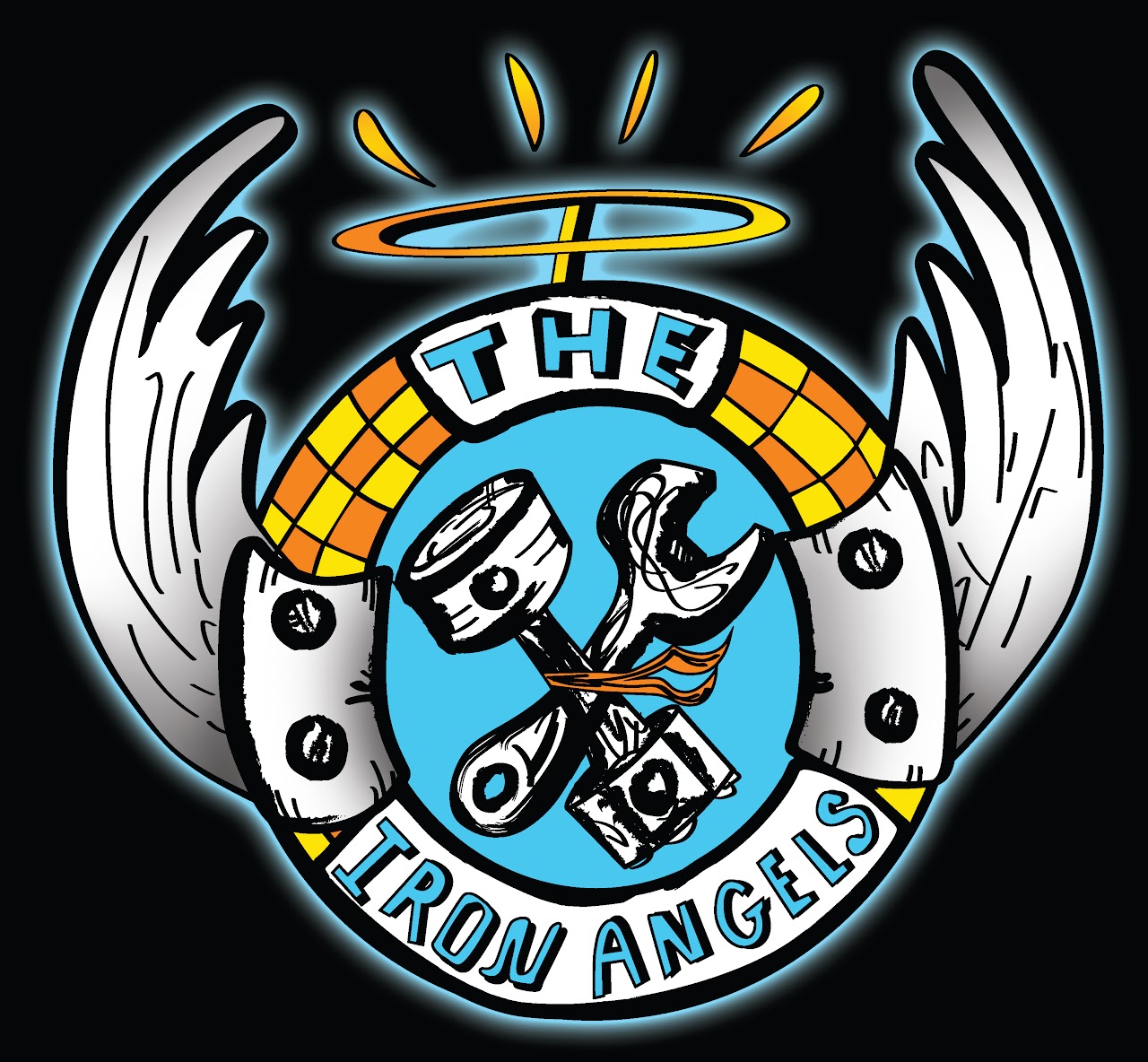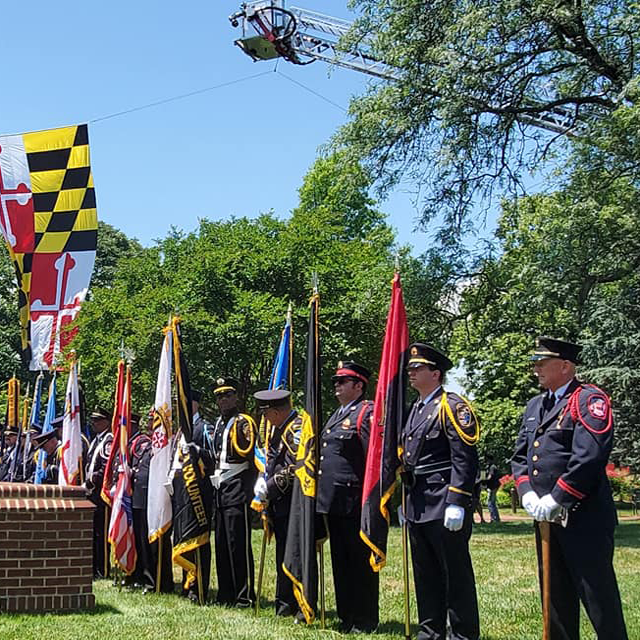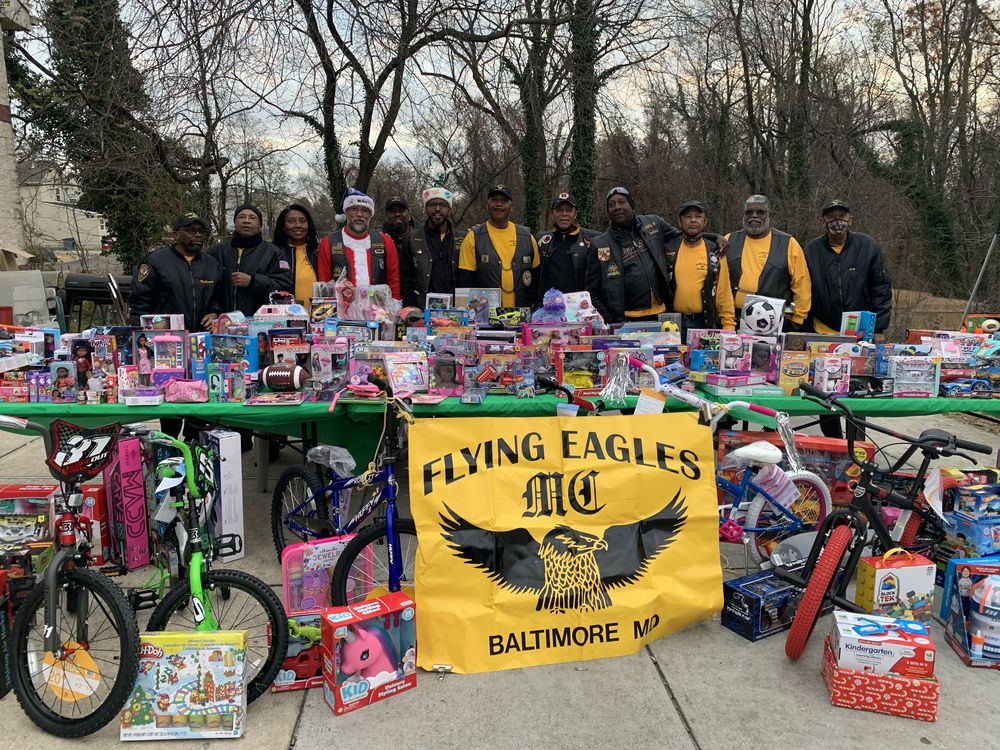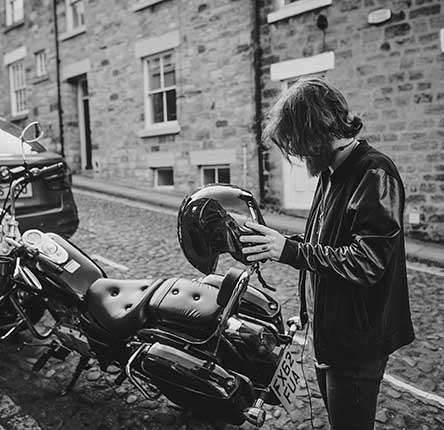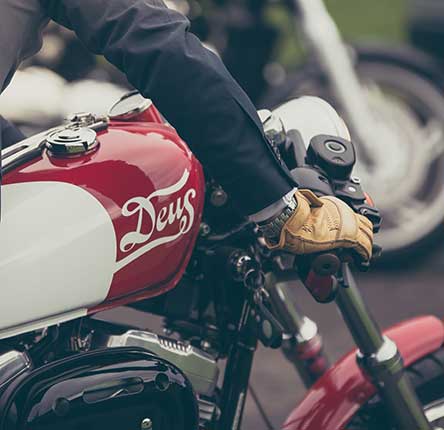“My aspiration [in] life: Think progress, not perfection. No matter the time it takes to get to where you want to be, keep positive and moving forward. [E]ven if you think it’s not possible, [anything] is possible if you set your mind [to] it.” -Henrietta Stands-Nelson
Henrietta Stands-Nelson is known as The Lakota Lady Warrior. There’s a reason for that. In 2018, she became the first indigenous female rider to enter and complete the Hoka Hey Challenge Ride, a grueling, 15-day, 10,000-mile ride through winding roads, tough terrain, and extreme weather through several states from Oklahoma to Florida. While she never grew up around bikes, she’s always had a natural affinity for riding. Growing up in Oglala, South Dakota on the Pine Ridge Indian Reservation, Henrietta was a barrel racer where she learned how to balance atop a horse while weaving in and out of barrels, a skill which translated well to becoming “one with her iron horse”. Her father was a well know Indigenous all-around rodeo man who was a professional bronc rider and bull rider who made it the Native Hall of Fame.
Henrietta first began riding later in life after raising her children. Her interest was first piqued in 2012 when she became friends with an avid rider who organized a group called the Navajo Hopi Honor Riders. She then began following them on Facebook and learning about bikes. Then, in May of 2013, she bought her first bike, a ‘96 Harley Road King she named “Thunder”. She remembers how difficult it was at first- practicing in the neighborhood and parking lots, her first “whiskey throttle” where she almost wiped out and being afraid to ride on the interstate.
After she gained confidence, however, there was no stopping her. By June, she was riding solo from Oklahoma City to Rapid City, South Dakota. It was there where she experienced rain-slicked roads and extremely hot weather. In her first year, Henrietta rode a total of 34,000 miles, participating in the Trail of Tears Ride, Wounded Knee Ride, Washita Ride, and Dakota Ride- all rides honoring her native ancestors and remembering those who had been massacred. She also participated in the Navajo Hopi Honor Ride which recognized Navajo war veterans, and Gold and Blue Star Families and was given the honor to lead a ride honoring a good friend who was a war veteran and leader of the biker community.
Then in 2018, despite having only four years of experience riding, Henrietta fearlessly registered for the Hoka Hey Challenge. “Hoka Hey”, which is known as a Sioux war-cry, is an appropriate name for the challenge. Guided only by one’s own self-reliance (no GPS allowed), participants were tested on their skills and endurance, riding up to 20 hours per day and sleeping outdoors. On the 7th day of the ride, Henrietta had a minor accident when she took a turn too fast. Luckily, she had no injuries and got right back in the saddle, earning her nickname of “lady warrior”. She was one of only six out of fifteen women to complete the challenge. As a result, she was able to raise $1200 for the people of the Pine Ridge Reservation where she grew up through the Conscious Alliance, a nonprofit organization committed to supporting communities in crisis through hunger relief and youth empowerment. Today, she can be spotted atop her 2018 Harley Road King, which she affectionately named “Warrior Pony”. Her goal is to ride in all fifty states and Canada.
Not only is Henrietta a passionate rider, but she’s also an activist and speaker. She regularly participates in rides to honor and remember her native ancestors and native war veterans. She is also an advocate for women and children living in poverty and indigenous women and children who are victims of violence. In 2016, she protested against the Dakota Pipeline in Standing Rock, North Dakota. She’s also written and spoken about her experiences as an indigenous female rider at a rally in Arizona and a human rights rally in Atlanta. This summer, she will be speaking at the RAD (Ride, Adventure, Dream) Rally.
One of her most important causes is raising awareness about the disturbing number of cases of missing native people in the United States. According to the National Missing and Unidentified Persons System (NamUs), there are more than 17,000 missing indigenous person cases all over the country. California, where Henrietta currently lives, has the highest number of cases with 2,869 and counting and Oklahoma, where she has previously lived, is amongst the top 10 states with about 461 cases. In August, she plans to participate in several rides organized by women and benefiting the MMIP and MMIW. One particular ride, which will be starting on August 14th in Bear Buttle, SD, is being held in honor of Savanah Greywind, a native pregnant woman who was killed to kidnap her unborn baby. To support her rides, go to Riderzz4Justice4MMINWM’s FB page. You can also follow Henrietta on her Facebook page, For more information about murdered and missing indigenous women and children, visit this MMIW USA website.

